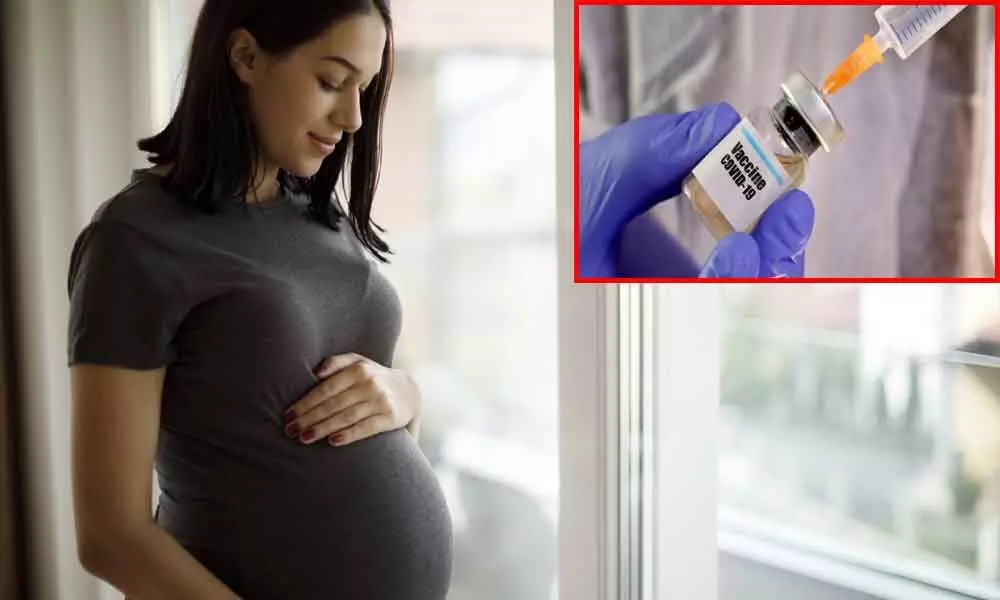Live
- First Impressions and Unboxing of the MacBook Pro M4: A Powerhouse for Professionals and Creators
- China Gears Up for Potential Trade War Amid Trump’s Tariff Threats
- Small Farmers Gain Less by Selling to Supermarkets: Study Reveals
- Why Despite the Controversy, America Is Anticipating the Mike Tyson vs. Jake Paul Fight
- Sanju Samson and Tilak Varma Shine: Record-Breaking Feats in 4th T20I Against South Africa
- India Urges $1.3 Trillion Annual Climate Support for Developing Nations
- Bad air: 106 shuttle buses, 60 extra Metro trips planned to make Delhiites give up cars
- WHO reports declining monkeypox cases in Congo
- CM Attends Kotideepotsavam on Kartika Purnima
- PKL Season 11: Raiding trio of Devank, Ayan, Sandeep help Patna Pirates rout Bengal Warriorz
Just In
Can pregnant women get COVID-19 vaccine? All you need to know


Can pregnant women get COVID-19 vaccine? All you need to know
Pregnant women exclusion from clinical trials means that we lack essential information about the safety and efficacy of the vaccine in this potentially high-risk group.
After months of clinical trials, a COVID-19 vaccine appears to be just around the corner. On December 11, Health and Human Services Secretary Alex Azar said that the FDA plans to authorize the Pfizer vaccine and that the first injections could be given as early as Dec. 14 or 15.
"Just a little bit ago the FDA informed Pfizer that they do intend to proceed towards an authorization of their vaccine," Azar told Good Morning America. "We should be seeing the authorization of this first vaccine and... we will work with Pfizer to get that shipped out. We could be seeing people getting vaccinated Monday or Tuesday of next week."
The Centers for Disease Control and Prevention (CDC) has adopted a recommendation to administer the vaccine to healthcare workers and residents of long-term care facilities before anyone else, as both groups are at increased risk of contracting the disease or developing cut the consequences of it.
But what about pregnant women? A Morbidity and Mortality Weekly Report (MMWR) study found that they, too, are at increased risk of severe illness from COVID-19, although less than other high-risk groups. The CDC also warned that pregnant women with COVID-19 could be at increased risk for different adverse outcomes, such as preterm delivery.
So pregnant women should also get the vaccine?
Unfortunately, it is not as simple as that. Pregnant women have not actively participated in late-stage clinical trials of any COVID-19 vaccines, including the Pfizer and Moderna vaccines. This lack of data means that even when the vaccines are cleared by the FDA for use in the US, they will not be recommended for pregnant women. On December 2, the Advisory Committee on Immunization Practices (ACIP), the CDC's independent advisory council, also noted that currently "no data on the safety and efficacy of COVID-19 vaccines in [pregnant or breastfeeding people] to inform vaccine recommendations."
Christopher Zahn, MD, vice president of practice activities for the American College of Obstetricians and Gynecologists (ACOG), told Health in an emailed statement that ACOG had "urged the US Food and Drug Administration as well as the Advisory Committee on Immunization Practices to address the use of the vaccine on pregnant and lactating individuals."
Dr Zahn added that ACOG would continue to monitor data and recommendations as they become available and will publish guidance for members "as soon as enough information is available from FDA and ACIP to adequately inform recommendations for the use of these impending vaccines in pregnant and lactating patients."
It should be noted that the UK, the first country to approve the Pfizer vaccine, has taken a similar stance concerning pregnant women. In what the UK government describes as a "precautionary approach", the Joint Committee on Vaccination and Immunization (JVCI) has warned that pregnant women do not receive the vaccine due to a lack of safety data. They have extended that advice to people who think they may be pregnant and to people planning a pregnancy within three months of the first dose of the COVID-19 vaccine.
There is also the question of pregnant health workers and whether they should take the vaccine. The ACIP has raised the fact that due to the predominance of people of childbearing age in the health workforce, a significant number of health workers are estimated to be pregnant or breastfeeding at any given time. The committee said further considerations on the use of COVID-19 vaccines in pregnant or breastfeeding healthcare workers "will be provided once data from phase III clinical trials and conditions of FDA Emergency Use Authorization are reviewed."
So what is gynaecologist's opinion on this?
Doctors in the field of maternal health are, like pregnant women, in a kind of watchful waiting phase right now. Rebecca C. Brightman, MD, a private practice gynaecologist in New York and an assistant clinical professor of gynaecology, obstetrics, and reproductive medicine at the Icahn School of Medicine, Mount Sinai, says that she received no information about the COVID-19 vaccine during pregnancy or in connection with pregnancy planning.
The easiest way to protect pregnant women from contracting the COVID-19 virus is to follow CDC's advice and social distancing, avoid indoor gatherings, and wear masks, and that applies to everyone, not just women who are pregnant. "Reducing cases of COVID-19 in the general population is still the smartest strategy to protect pregnant women from this unpredictable and potentially deadly virus," Dr Ross says.
There is also the question of herd immunity, possibly protecting pregnant women in the future, but we are far away from that. The dangerous infectious disease expert, Dr Anthony Fauci, says at least 75% of people should be vaccinated or infected to produce herd immunity.
But right now, we don't know for sure if the COVID-19 vaccine is safe for pregnant women or when the vaccine will be offered to them.

© 2024 Hyderabad Media House Limited/The Hans India. All rights reserved. Powered by hocalwire.com






